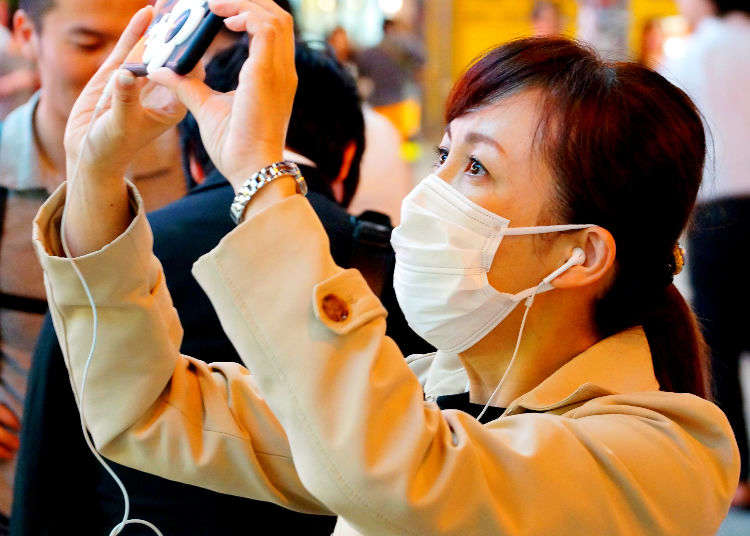
The way people try to prevent colds varies from country and region. What may seem obvious to Japanese as a way to prevent colds may seem odd to foreign visitors.
Here we will take a look at why Japanese wear face masks, plus folk remedies that have been passed down through the ages, food and drink taken when one has caught a cold, and various other attitudes regarding “colds” in Japan.
- Table of Contents
-
- The Reason Japanese Wear Face Masks: “To Prevent Catching a Cold and Hide the Fact You Aren’t Wearing Makeup”
- Wrapping Green Onions around the Neck is One Folk Remedy in Japan for Warding Off Colds
- Japanese think the Best Way to Avoid Catching a Cold after Returning Home from Outside is to Gargle and Wash One’s Hands
- Kanpu Masatsu (vigorously rubbing the skin with a dry cloth) is Believed to Strengthen Resistance towards Colds
- Okayu (rice porridge) is the Main Dish Served Once You Have Caught a Cold
- Sports Drinks Help You Stay Hydrated Once You’ve Caught a Cold
- A Type for Every Kind of Symptom! Various Cold Medicines You Can Buy at Drug Stores
The Reason Japanese Wear Face Masks: “To Prevent Catching a Cold and Hide the Fact You Aren’t Wearing Makeup”
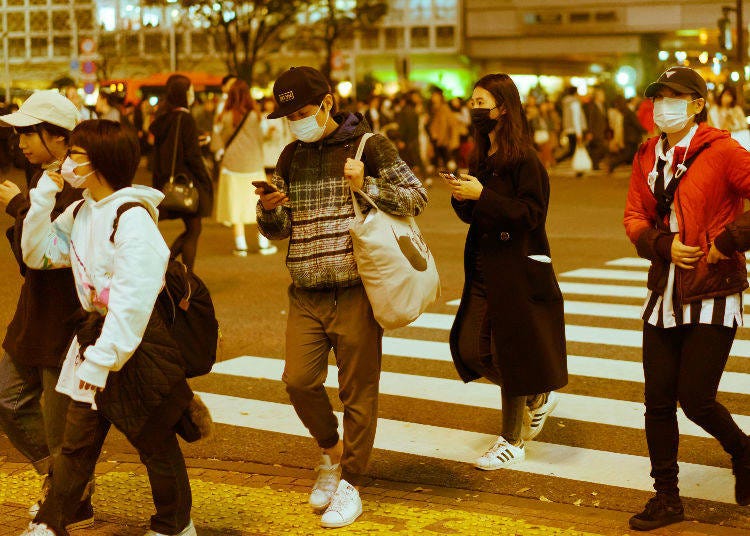
Wherever you go in Japan, on the streets, in trains and buses, you are bound to see many people wearing masks.
Of course there are those who wear them because they have caught a cold or have pollen allergy, but surprisingly many wear a mask to “prevent catching a cold.”
That is even though masks have little effect in keeping out cold and influenza viruses. Especially during winter when the air is dry, and when you breathe in cold outside air over long periods of time, it is easier to catch a cold because the airway mucosa becomes less immune.
There is also another reason why many women wear masks and that is they had to quickly leave home before they had time to put on their makeup and when a mask is used for that purpose it is called suppin kakushi (hiding a face without makeup).
Another reason is because they believe that a mask makes their face look smaller and some even think it makes a fashion statement.
Wearing a mask when going to bed protects you from breathing in cold, dry air, maintains body temperature, and improves blood circulation.
Japanese wear masks for many purposes such as to avoid catching a cold or to make a fashion statement.
Wrapping Green Onions around the Neck is One Folk Remedy in Japan for Warding Off Colds
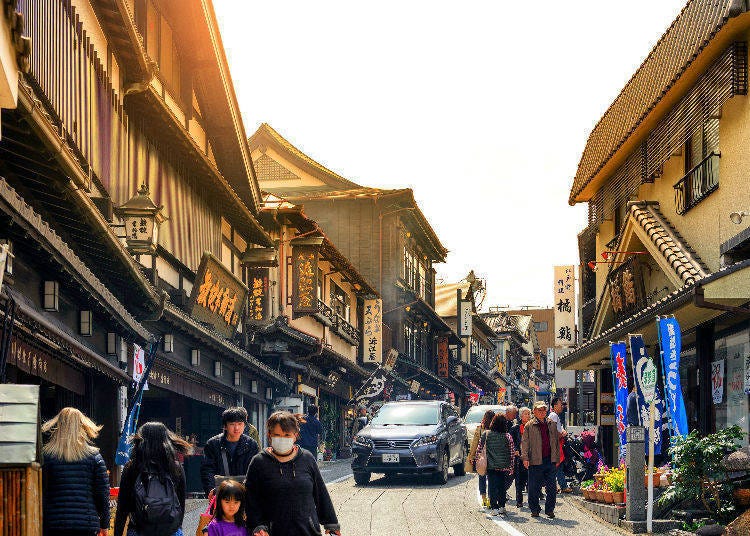
Ways to ward off colds or to deal with one after getting one varies depending on the country. For example, wearing wet socks when you sleep (America), drinking cola (France), and eating pears (China), all of which are unimaginable in Japan.
Even in Japan folk remedies vary according to region, such as the unique method of wrapping green onions around your neck. Cutting up a green onion releases allicin that is responsible for its aroma and this is said to have a bactericidal effect, improve blood circulation, and strengthen the immune system.
The allicin is inhaled through the mouth and nose when green onion is wrapped around the neck and that helps ward off a cold. Allicin also has the effect of calming nerves thus making it easier to fall asleep. Many Japanese follow the custom of using green onions in udon, soba, and miso soup as a condiment.
Japanese think the Best Way to Avoid Catching a Cold after Returning Home from Outside is to Gargle and Wash One’s Hands
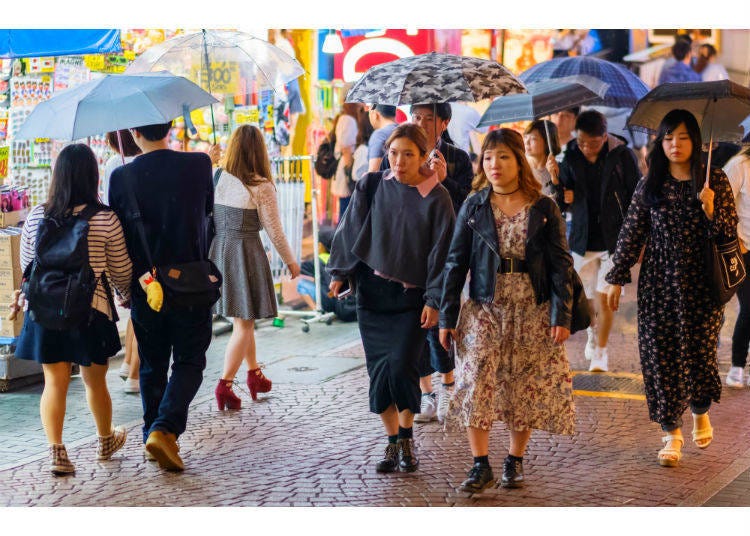
When returning home or to the office from outside, washing hands and gargling are taken for granted by many Japanese as being ways to avoid catching cold as they are habits ingrained since childhood.
Gargling with water prevents your throat from becoming dry, the purpose being to prevent bacteria from entering the body. But there are different views regarding the effectiveness of this custom, as with many unusual customs around the world.
In the entrances of hospitals and public facilities there are pump dispensers of alcohol disinfectant. These are even found in some offices because it is said to be effective against contracting infections like colds and influenza. Japanese are fastidious when it comes to dealing with cold bacteria and cold viruses.
Kanpu Masatsu (vigorously rubbing the skin with a dry cloth) is Believed to Strengthen Resistance towards Colds

Kanpu masatsu is a traditional method followed in both Japan and northern Europe in which the skin is rubbed with a dry towel. It evokes an image of someone naked from the waist up performing a severe kind of training, but in fact it is not an especially hard form of hygiene.
Rubbing the surface of the skin heightens the autonomic nerves, which is recognized as being effective in strengthening the body’s immune system. This is a custom familiar to Japanese who believe the practice enables the body to naturally deal with the cold in winter.
Okayu (rice porridge) is the Main Dish Served Once You Have Caught a Cold
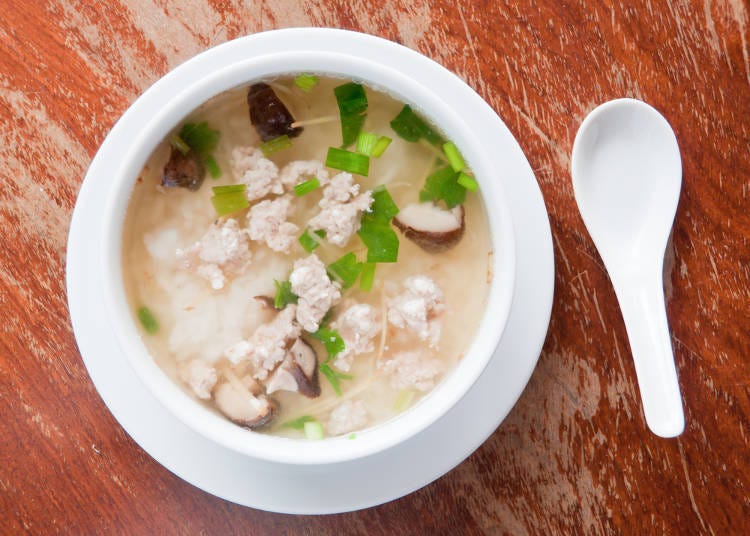
Most Japanese will eat okayu (rice porridge) when they catch cold. Rice is cooked with extra water to make it soft or else once regular rice has been prepared, putting some in a pot with extra water and cooked until it becomes a soft porridge.
Not only is it good for when you have caught a cold because it is easy to digest, but also at other times when the stomach feels unsettled; some have it when they have lost their appetite due to a hangover. In most cases it is eaten plain and unflavored, however, some people like to add an umeboshi (salted plum), katsubushi (dried bonito shavings) or pickles for flavor. Some also like to add seasonal leaves and vegetable, sweet potato, or egg.
There are all sorts of good foods to eat when you first come down with a cold. For example, tamagozake (Japanese eggnog) is made by cracking an egg into a glass of Japanese sake, adding sugar, and heating it up. The earliest records of this drink go back more than 300 years. Both sake and chicken eggs are high in nutrients and when warmed, Japanese sake raises the body temperature which helps strengthen the immune system.
Other popular drinks when coming down with a cold are shogayu (ginger tea), kuzukuyu (arrowroot tea), and amazake (sweet sake). When children catch cold and can’t eat or drink, many families give them surioroshi ringo (grated apple). Since ancient times Japanese have endeavored to eat foods that are easy to digest and strengthen the immune system when they catch a cold.
Sports Drinks Help You Stay Hydrated Once You’ve Caught a Cold
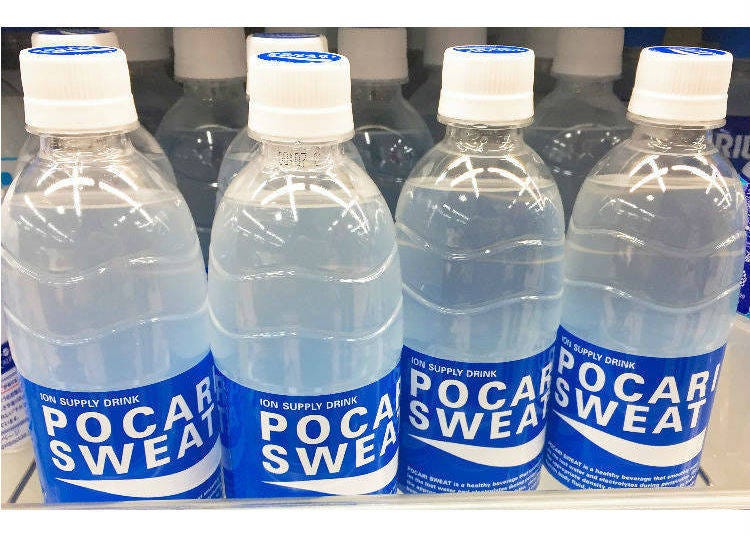
In the past Japanese would drink sayu (plain boiled water) when they caught a cold, but these days many prefer to drink sports drinks.
These are popular when working out or after a workout, many people guzzling them in place of tea. There are many types, such as Pocari Sweat (Otsuka Pharmaceutical) and Green Dakara (Suntory). These are rich in the nutrients that are lost when you perspire and they are easily absorbed by the body which makes them perfect to prevent becoming dehydrated such as when having a fever, vomiting, and diarrhea.
For that reason they are often recommended by doctors once you have caught a cold. However, drinking them when taking cold medicine is not advised because there is concern they would lessen the active ingredients in the cold medicine.
Also, drinking cold sports drinks can lower the body temperature which weakens the immune system. It is best to drink them at room temperature or heated. All that being said, many Japanese like sports drinks for dealing with colds.
A Type for Every Kind of Symptom! Various Cold Medicines You Can Buy at Drug Stores

When you go to a drug store in Japan a wide variety of cold medications are available. There are brands with the same name by the same manufacturer, but vary according to the cold symptoms.
Some are for coughs and sore throats while others are good for fevers and the chills, still others for nasal congestion. The medication also comes in different forms, such as tablets, capsules, or powder form, so it is possible to find a medication suitable for anyone, child or adult.
These are convenient when you don’t feel bad enough to see a doctor but want something to immediately deal with the cold. In recent years quite a few foreign visitors have been buying Japanese pharmaceuticals as gifts because of their high quality.

How are colds dealt with in your country? When you visit Japan, why not compare that with the way Japanese deal with colds, such as by wearing masks, washing their hands, following old folk remedies, or relying on modern pharmaceuticals. Some methods may be very different, or perhaps in some cases, similar.
*Prices and options mentioned are subject to change.
*Unless stated otherwise, all prices include tax.
Popular Tours & Activitiess
-

See Asakusa and Tokyo Skytree® in a New Light at the "Také Akari" Festival (Winter 2025-2026)
by: Guest Contributor
-
Ad

Unraveling the History of the Hidden Christians from Goto Islands, Nagasaki Prefecture, located in Kyushu
by: Yohei Kato
-

The Ultimate Guide to Mitsui Outlet Parks in Japan (2025 Edition) - Popular Tax-Free Malls & Coupon Info for Travelers
-

2025 Japan Autumn Color Report: Northeastern Japan Nearing Peak
by: Timothy Sullivan
-

Black Friday 2025: These Are THE Japan Travel & Shopping Deals to Check Out
-

A Don Quijote Like No Other: Step Inside the All-New Tourist-Friendly Store at Shinjuku Tonanguchi Bekkan
by: Chehui Peh
Inspiration for Accommodations
-

Enjoy Mt. Fuji from the Comfort of Your Room! Recommended Ryokan with Mt. Fuji View
-

Stay Near the Cherry Blossoms! Hotels for Cherry Blossom Viewing in Tokyo
-

Family-Friendly Hotels with Free Shuttle to Disneyland: Convenient Access for a Magical Stay
-

Top Ranked Hakone Hotels with Mt. Fuji View: Enjoy Stunning Scenery from Your Private Space
-

Convenient Tokyo Hotels with Airport Shuttle: Ideal for Families and Heavy Luggage
-

Stunning Tokyo Tower View Hotels: Enjoy Spectacular Scenery from Your Private Space
-

Convenient Asakusa Hotels with Kitchens: Ideal for Extended Family Visits
-

Experience Luxury: Hakone's 10 Best Five-Star Accommodations
-

Enjoy Mt. Fuji Autumn Leaves! Top Hotels Near the Popular Autumn Leaves Corridor
-

Experience Hakone Fall Foliage from Your Room with Stunning Views
-

10 Important Japanese Phrases to Know Before You Enter a Japanese Convenience Store!
by: Teni Wada
-

Tokyo Train Map: Your Essential Guide to Subways and Railways
-

The 10 Best Sweets and Snacks at Japan’s Most Famous Drugstore
-

3 Secret Spots to Enjoy in Harajuku at Night! Whether you share the secret is up to you...
-

Seasons, Typhoons, and More! 9 Curious Facts about Japan's Climate!
-

Guide to Tokyo's Old Quarter: 7 Quaint Spots in Yanesen!
- #best ramen tokyo
- #what to buy in ameyoko
- #what to bring to japan
- #new years in tokyo
- #best izakaya shinjuku
- #things to do tokyo
- #japanese nail trends
- #what to do in odaiba
- #onsen tattoo friendly tokyo
- #daiso
- #best sushi ginza
- #japanese convenience store snacks
- #best yakiniku shibuya
- #japanese fashion culture
- #best japanese soft drinks



















